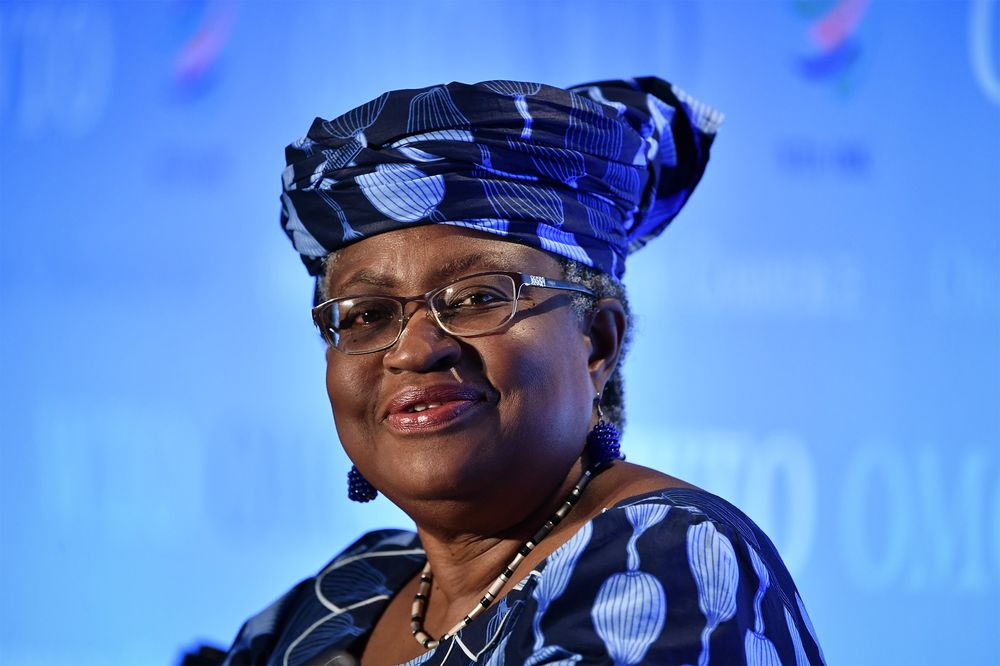WHILE NIGERIA AND AFRICA Celebrates HER APPOINTMENT:
Ngozi Okonjo-Iweala

Dr Ngozi Okonjo-Iweala
John Batu
The World Trade Organisation members made history on the15th of February, 2021 when the General Council agreed by consensus to select Ngozi Okonjo-Iweala of Nigeria as the organization’s seventh Director-General. On 1st March, she became the first woman and the first African to win the director general post of the of the 164-member World Trade Organisation (WTO). While Nigeria and Africa celebrate her appointment, questions have began to arise as to what benefits her appointment holds for Nigeria and Africa.
In Africa, trade is viewed as a driver of growth, a way towards sustainable development and as a tool for poverty eradication. Okonjo-Iweala also sees trade in like manner as an instrument for growth, development and raising living standards, which was in the original remit of the WTO. But that has long been relegated behind battles over commercial dispute resolution and geopolitical rivalries between China and the United States.
In an interview with The Africa Report last year, she said, “Trade is not an end in itself, it’s a means to an end […] an instrument that helps deliver development so that those who have been marginalised can be brought in.” Perhaps this explains part of the reason why Donald Trump opposed her nomination. Their view of trade is mercantilist: maximise exports, minimise imports in the cause of economic nationalism.
The World Trade Organization is an organization that regulates global trade and except you have something to sell and put into the world market, she cannot help you because her role is to ensure that you get a fair deal and that you are not cheated in the whole process. Nigeria, like several African nations is a mono-economy which has not sufficiently diversified. There is still large dependence on one or two primary commodity exports. As a consequence, they have been affected by swings in commodity prices. Domestic markets are plagued by internal barriers to trade, such as low level and poor-quality infrastructure, corruption, blunting of price signals. African markets remain small with regional markets insufficiently integrated.
It is also important to note that Developed economies appear to be “kicking away the ladder” with which they used in diversifying their economies and climbed to the top, and this remains an obstacle to Africa’s effective integration into the global economy. Advanced economies do not allow developing countries to adopt the industrial policies that they themselves used to transform their production structures and diversify their exports.
Africa Business argued in a September 2020 report that, perhaps the most serious indictment against the WTO system is the agricultural subsidies developed countries’ governments provide, at the expense of millions of Africa’s poorest farmers. These subsidies not only depress world food prices, making it difficult for African producers to compete, but also lead to excess production being dumped in African markets, which wipes out local industries and thus threatens food security. It is, thus, expectated that a WTO led by Okonjo-Iweala would critically look at this as a means of supporting Africa, while at the same time ensuring that Africa is not locked out of critical discussions and policies that affect global trade.
Africa accounts for approximately 27 per cent of total WTO membership and 35 per cent of WTO developing countries’ membership. Trade is vital for Africa’s development and to generate enough good jobs to absorb the 17 million young people who enter the labour market every year. But, for too long, global trade regulations have left the continent holding the short end of the stick.
Africa appears to have cast its vote for more and better trade with itself, to push their course in World Trade. In March 2018, African countries signed a landmark trade agreement, the African Continental Free Trade Area Agreement (AfCFTA), which commits countries to remove tariffs on 90 per cent of goods, progressively liberalise trade in services, and address a host of other non-tariff barrier. Creating a single, continent-wide market for goods and services, business and investment would reshape African economies. The implementation of AfCFTA would be a huge step forward for Africa, demonstrating to the world that it is emerging as a leader on the global trade agenda.
According to the World Bank, the African Continental Free Trade Area (AfCFTA) agreement will create the largest free trade area in the world measured by the number of countries participating. “The pact connects 1.3 billion people across 55 countries with a combined gross domestic product (GDP) valued at US$3.4 trillion. It has the potential to lift 30 million people out of extreme poverty, but achieving its full potential will depend on putting in place significant policy reforms and trade facilitation measures.” This will help African countries diversify their exports, accelerate growth, and attract foreign direct investment.
The rubrics, goals and objectives of the AfCTA aren’t incompatible in anyway with those of the WTO, and Dr. Okonjo-Iweala could help pilot it towards more support for the continent. That could be in offering technical help, trade analysis and policy expertise, turning the dream of free trade across Africa into reality. In addition, she will possess the moral capacity to pressure African political leaders to design and implement sensible trade policies that support growth.
Perhaps more difficult but vital to African and other developing economies is improving market access for their agricultural products. This access is severely limited in part because of the huge distorting subsidies that wealthy nations provide their farmers.
There have been encouraging overtures from European countries and Australia to African diplomats to help mitigate this problem, but it will need the leadership of the WTO to give the initiative the momentum it needs. Dr. Okonjo-Iweala, who has stressed that trade must be centred around people and focused on economic development and reducing global inequities, is singularly positioned to lead this effort for Nigeria and Africa.



